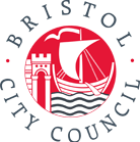Parkinson's and Other Movement Disorders HIT review of 2016-17
Dr Alan Whone, Director of the Parkinson's and Other Movement Disorders Health Integration Team (MOVE HIT), gives an update on the HIT's progress in 2016-17.
- 8th May 2017
Dr Alan Whone, Director of the Parkinson’s and Other Movement Disorders Health Integration Team (MOVE HIT), gives an update on the HIT’s progress in 2016-17.
The Movement Disorders HIT works to improve quality of life for people with Parkinson’s and other movement disorders in the Bristol area. Our work also aims to have international impact.
Our patient and public involvement (PPI) group continues to be at the centre of our project to map an integrated care pathway for Parkinson’s in Bristol, North Somerset and South Gloucestershire. Together, we have produced a map of the diagnosis pathway. We are talking to the Bristol Referral Service about making the resources we have developed available to GPs in the region. These resources include a referral advice note and a Parkinson’s nurse specialist advice note.
Our patient and public involvement group has agreed recommendations for psychological support and palliative care. The group is working with researchers and students at the University of the West of England to develop a research project on barriers and enablers to engaging in physical activities for people with Parkinson’s.
The pathways for our advanced treatment services, deep brain stimulation and Duodopa, have been designed and are in use locally. We hosted a national conference for deep brain stimulation nurses on 16-17 March 2017. The event was a huge success and progressed our objective to provide an excellent and research informed regional advanced treatment service.
We were pleased to see Mel Falk, a member of our HIT executive, getting international recognition through her election to the board of the Association for Chartered Physiotherapists on Neurology (ACPIN). ACPIN is the association for those who specialise in rehabilitation and therapy for complex conditions such as stroke, Parkinson’s, multiple sclerosis, spinal injury and motor neurone disease.
This year has also seen our education work-stream develop under new leadership from Dr Konrad Szewczyk-Krolikowski. The team has already reviewed training support for staff in care homes and will be considering how best to assist colleagues in primary care.
As part of our research work-stream, led by Professor Richard Apps, we now have a database of more than 70 clinicians and researchers with an interest in movement disorders research. Our showcase event on 10 May 2017 will bring many of these colleagues together for the first time to share findings and build new collaborations.
We’ll also bring together industry partners to explore how they can support MOVE HIT’s priorities. This will build on our existing strong links with the voluntary sector, and Parkinson’s UK in particular, with whom we continue to work closely.






